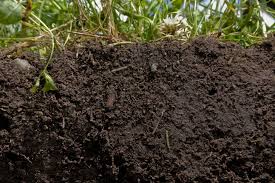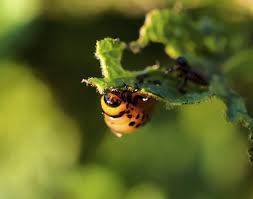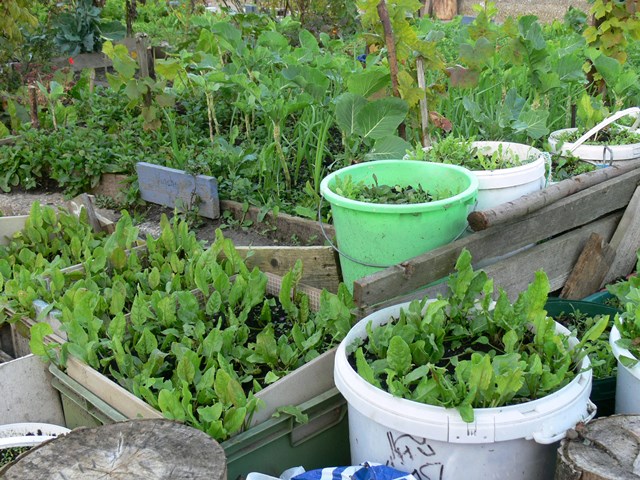Organic vegetable gardening is a rewarding pastime. There are few things as satisfying as knowing that you are producing wholesome food for your family. But it isn’t always easy. That’s why we’ve compiled these organic gardening tips to make your favorite activity even more enjoyable.
Organic Gardening Tips for Healthy Soil
There is nothing more important for a great organic garden than healthy soil. Try these tips to build amazing organic garden soil for raised beds, regular beds and containers.

Image courtesy of organicgardenharvest.com
Build Soil in Pathways
The best organic gardening tips are the simplest. Create compost by laying down a thick layer of cardboard or newspaper on your organic garden paths and covering it with several inches of straw. Walk on this all summer while working in your garden. By fall your paths will be full of rich dark soil that can be added to your beds.
Preserve Mature Compost
The quality of compost deteriorates over time if it is exposed to the elements. If you can not use your finished compost right away, cover it with a tarp to prevent the nutrients from leaching away.
Use Compost Tea
Don’t have time to wait for your compost pile to mature? Try making a quick compost tea as a pick me up for your plants. Mix equal parts compost with water and let sit for at least 2 days (a week is better). Pour onto soil around healthy plants, or dilute 10:1 and spray on leaves. You can also use fresh plant material and let it sit in water for 10 days for a similar tea.
Encourage Earthworms with Cardboard
I actually met a woman who routinely removed earthworms from her garden! Agh! Earthworms are so beneficial to your soil and thus to the health of your plants. They aerate the soil, providing paths for future roots to follow and leaving behind nutrient rich worm castings. Encourage them by laying down cardboard when making a new organic garden bed or putting an established bed to rest for the winter. They love cardboard and will help break it down into rich soil.
Organic Gardening Pest Control
From aphids to mites pests are the bane of every gardener. Follow these organic gardening tips to keep pests out of your gardens:

Image courtesy of gardeningknowhow.com
Plant Herbs
Plant nectar producing herbs like parsley, dill and fennel to attract beneficial insects like ladybugs and predatory wasps when growing an organic garden.
Get Excited about Bugs in Your Organic Garden
Less than 2% of insects in the entire world are harmful to vegetable gardens. Most are actually beneficial, so its time to learn to love the insects in your organic garden. Encouraging the beneficial ones will keep the damaging pests at bay.
Bring in the Bats
Bats are experts at pest control. Many feed exclusively on insects. In North America bats actually eat more insects than birds and bug zappers combined. You can encourage them by providing tree cover near your organic garden or a rocky shelter like that in the corner of a rock wall.
Use Diatomaceous Earth to Combat Slugs
This natural, non-toxic, organic powder is a great all around insecticide and slug barrier.
If you must… Use Botanical Insecticides
Remember that the best way to combat pests in an organic garden is to develop healthy soil. Healthy soil grows strong plants that don’t succumb to insects or disease. But if you must use a pesticide, go with a botanical variety. These can be more toxic than synthetic insecticides, however they break down rapidly and don’t accumulate in the food chain the way synthetics do, making them a better option for the long run.
Water your Organic Garden in the Morning
Okay, so powdery mildew and other fungal diseases aren’t exactly pests, but they can kill your crop. They are spread by high humidity, so watering in the morning is the best way to avoid them.
Extended Reading
Check out these money-saving organic gardening tips.

